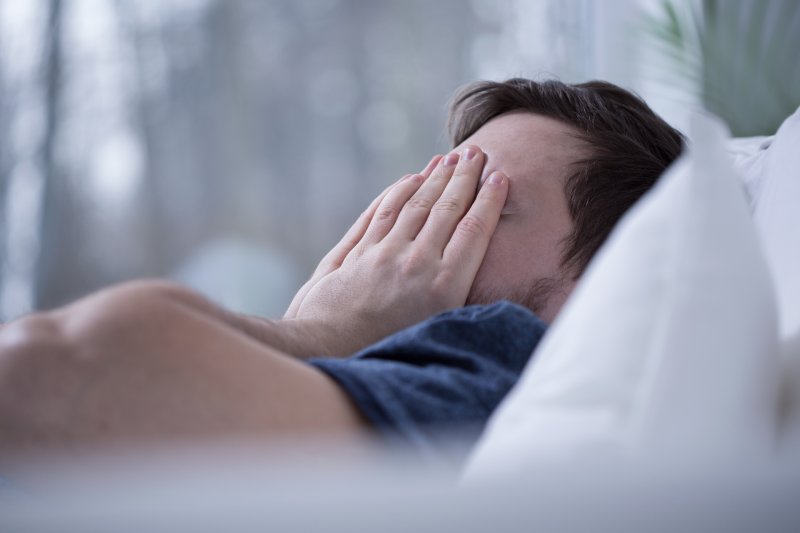
Lately you’ve started snoring loudly, and your partner has told you that your breathing frequently stops when you’re asleep – both potential signs of sleep apnea in Topeka. You’re a bit reluctant to seek treatment, so you’ve decided to wait and see if the problem goes away by itself. But is this really the right decision? Can you actually expect sleep apnea to go away by itself? And if not, what are the right steps to take?
Can Sleep Apnea Go Away on Its Own?
Sleep apnea occurs when any part of the airway collapses or is blocked while you’re asleep. This might be the result of environmental factors such as weight gain or the use of alcohol. However, sometimes the condition is tied to your anatomy. If you have an overly large tongue, enlarged adenoids, a larger than average neck, or a deviated septum, then there’s a good chance that you’ll experience sleep apnea at some point in your life.
If the cause of sleep apnea lies in your anatomy, then you cannot expect the problem to take care of itself. Children might be able to find relief from the disorder after they’ve grown and developed some more, but once they’ve completed adolescence, their anatomy will become largely fixed. At that point, there’s little chance of sleep apnea going away on its own. As for disorders linked to environmental factors, while it’s possible to make changes to reduce your symptoms, you’ll still need a professional’s help to find a permanent solution.
What Can You Do About Sleep Apnea?
Aside from undergoing surgery to change your anatomy, there are several steps you can take to reduce the impact that sleep apnea has on your life. Losing weight can reduce the amount of tissue around the airway, which reduces the risk of the airway collapsing or becoming blocked. Also, performing certain exercises to strengthen the muscles in your mouth and throat (such as tongue strengthening exercises or practicing certain breathing techniques) can make them less likely to collapse and block the airway at night. Furthermore, studies show that people who sleep on their sides tend to experience less severe sleep apnea symptoms than those that sleep on their backs.
In cases where you can’t avoid sleep apnea, you can talk to your sleep dentist in Topeka about getting an oral appliance. This simple device helps stop the airway from collapsing so that you can breathe deeply without interruption throughout the night. Different oral appliances might be used depending on what the exact cause of your sleep apnea is.
Ignoring sleep apnea is never the answer. Your symptoms will only start to improve after you act. Reach out to your sleep dentist today if you have any questions about the treatment options available for sleep apnea.
About the Author
Dr. Michael E. Michel opened his first dental office here in Topeka in 1981. He has advanced training in dental sleep medicine and has spent decades studying this specialty to help patients from all over Kansas find long-term relief from sleep apnea. If you think you might have sleep apnea and want to learn more about the potential treatment options at Sleep Solutions by Michel Dental, visit his website or call (785) 273-0802.
